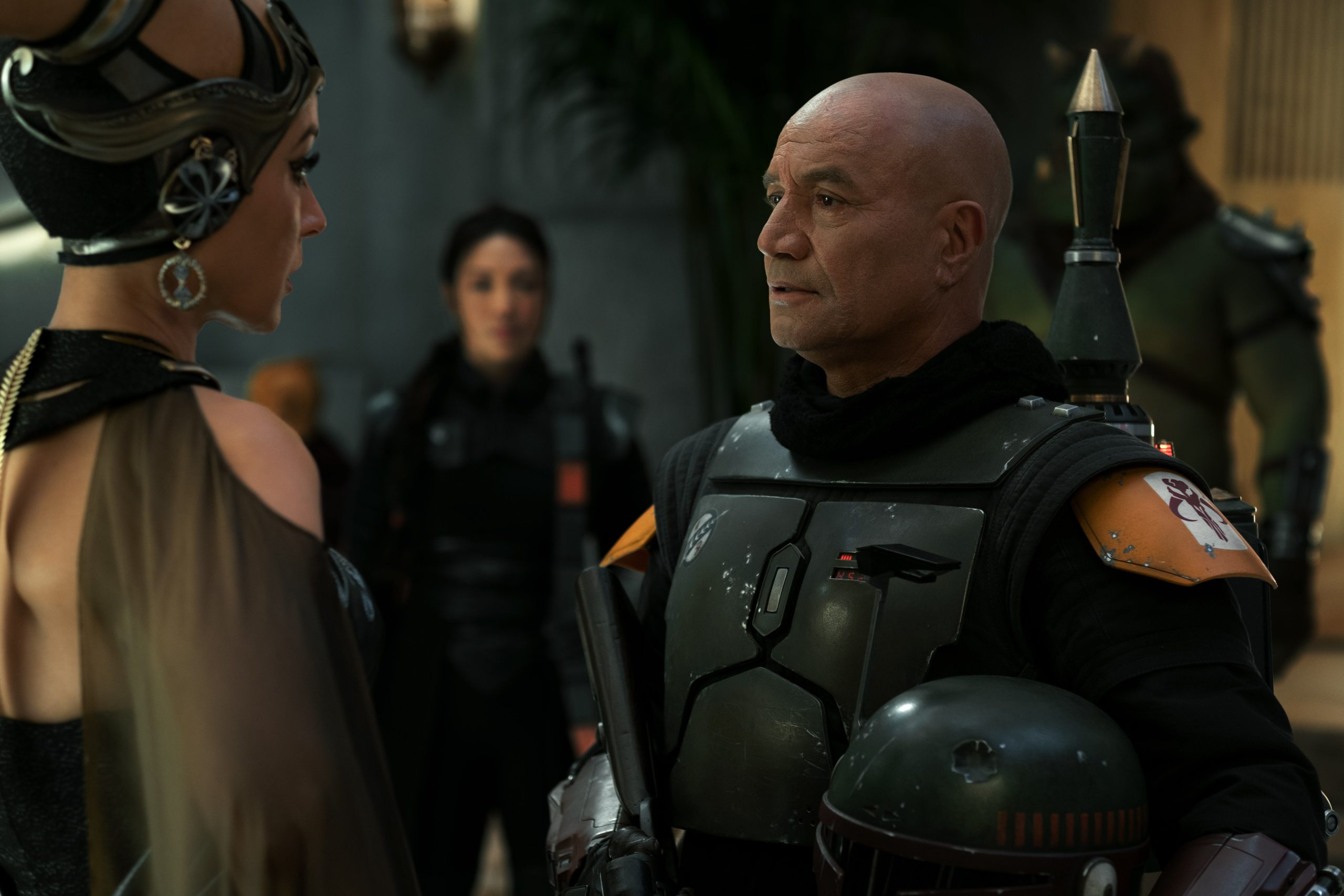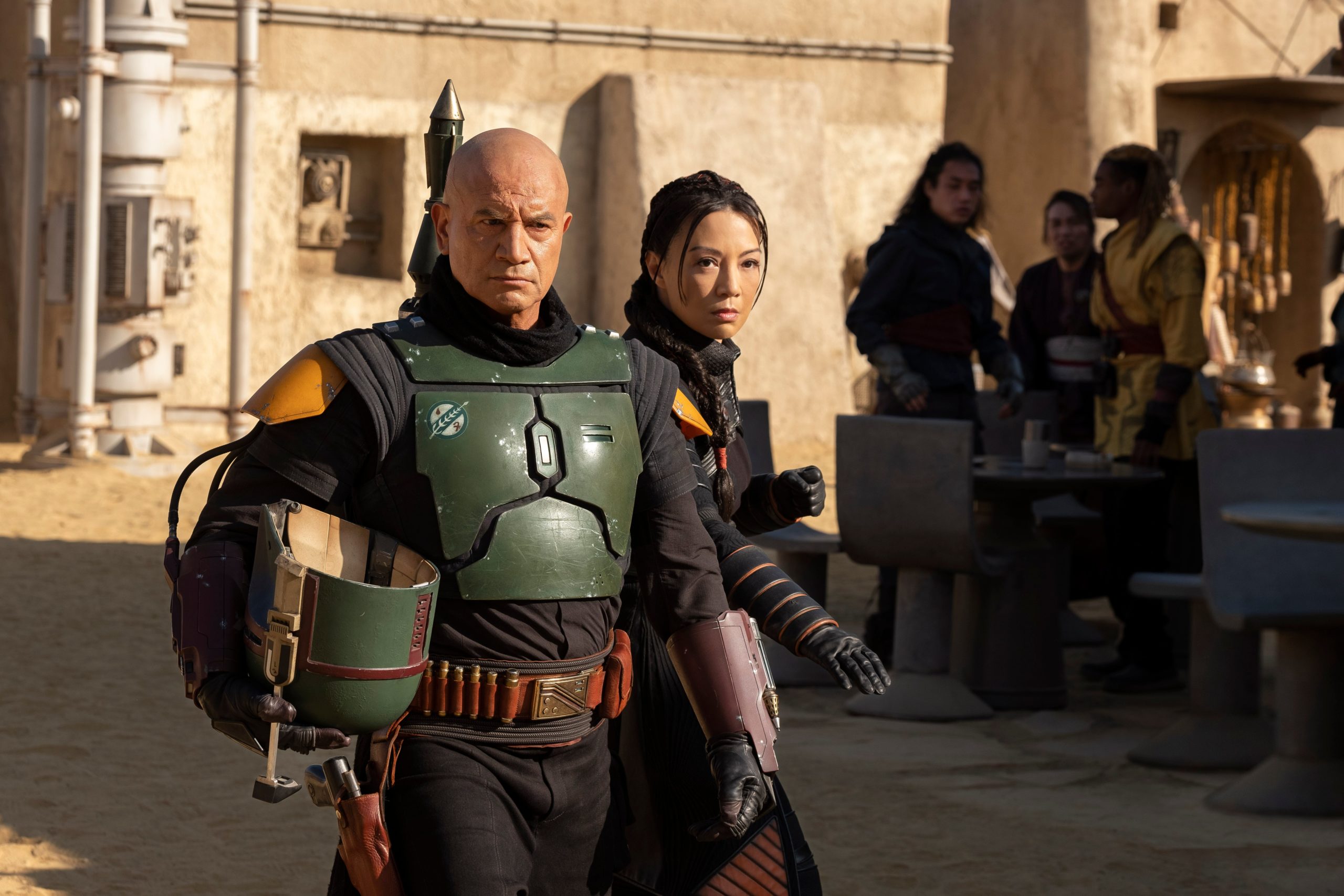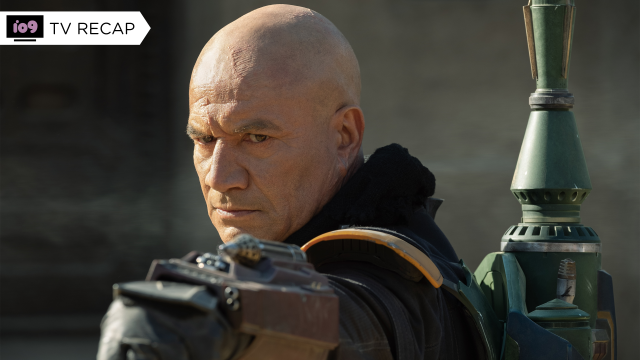When Boba Fett returned from the dead in The Mandalorian’s second season, it offered him up as an archetype his own legacy had helped establish: the template that the entire Mandalorian culture was built upon for decades of stories. The Book of Boba Fett begins by diving a little further into its titular protagonist’s recent past — but does little so far to add texture beyond what we already knew.

Thematically, “Stranger in a Strange Land” and its predecessor in The Mandalorian’s “The Tragedy” are in lockstep with each other, as The Book of Boba Fett’s premiere spends much of its runtime re-establishing Temuera Morrison’s taciturn warrior the same way The Mandalorian did a year and a half ago. Since the writing is already satisfied with its idea of who Boba Fett was and is in this new Star Wars canon — a warrior of honour, like his father before him, and like many of the Mandalorians that have followed in his footsteps — the episode is less interested in poking at this thesis than it is painting in the gaps it took to get there.
“Stranger in a Strange Land” is an episode that is refreshingly light on mystery. It follows the interwoven timelines of Boba’s past (covering his escape from the Sarlacc pit after the events of Return of the Jedi) and his current present as of the final scenes of The Mandalorian’s sophomore season. Boba and his new partner Fennec Shand (the returning Ming-Na Wen, who remains a cipher since her own return from beyond the grave) are now facing the political realities of a post-Jabba Tatooine.
Like its titular hero, this episode is blunt and to the point about what Boba’s current situation and his path ahead. There is no Luke Skywalker in a hallway here, nor is there a baby Yoda… nothing to upend what we could expect out of Star Wars’ status quo. How did Boba Fett escape the Sarlacc? He got out of it. What’s he doing on Tatooine now? Exactly what you’d expect. Who is Boba Fett? Who you have always wanted him to be.

On the one hand, this means that The Book of Boba Fett’s stakes are not all that high. That’s not a slight: I actually appreciate the restraint, given that Star Wars has lately been inclined towards the greatest stakes possible in a galaxy where everyone you know is always just around the corner. On the other, it means that The Book of Boba Fett doesn’t have much to say about its titular character yet. The Mandalorian re-forged Boba in a template his long history in Star Wars’ expanded universe had established for the kind of roaming mercenary characters that would come in his wake. So he feels familiar and lacks mystery, even though this is a brand new story.
In presenting this as who Boba always was — even when, as we see in flashback, he is stripped of his iconic armour after his sarlacc escape, dragged along as a debased victim of Jawa scavengers and then as a prisoner of nomadic Tuskens — The Book of Boba Fett doesn’t allow the viewer to question our preconceptions of Mandalorians, or of our titular hero. If Boba was always the stoic, honorable and enduring warrior he is now, there’s little room to play with our expectations in the manner that The Clone Wars did with Mandalorian society, or The Mandalorian did in its first season. Of course Boba would prove himself to his Tusken captives through honour and strength, defending a youngling that kept him in chains by using those chains to fight a multi-armed creature stalking Tatooine’s dunes. Of course Boba would preach respect and honour to Jabba’s former vassals, even as he merrily and brutally blasts and wrist-rockets his way past anyone who would oppose his new rule. Is this not the Boba Fett we always wanted? Is it not the same Boba we got in his Mandalorian return?

That is not to say there aren’t hints of something more here, even as “Stranger in a Strange Land” chooses to play it safe. There is the question of just how Boba and Fennec will choose to navigate the politics of Tatooine’s (not-so-under) criminal underworld. There’s already friction in the form of uneasy new allies like Jennifer Beals’ Garsa Fwip, and new foes like the assassins sent to remove Boba from his throne. There is also, just as there was in “The Tragedy,” more allusions to the idea that Boba has yet to grapple with the trauma of how he lost his father, as Bacta-pod-induced flashbacks haunt him with images (ripped directly from Attack of the Clones) of the moment he discovered Jango’s end.
If The Book of Boba Fett intends to chase down these threads, even as it re-assures us that its titular hero is who we always wanted him to be, it could add some intriguing texture to the man behind one of Star Wars’ most iconic masks. For now, though, it is simply content to be as direct: It knows who Boba Fett is. For now, and for many, that will be enough.
Wondering where our RSS feed went? You can pick the new up one here.
